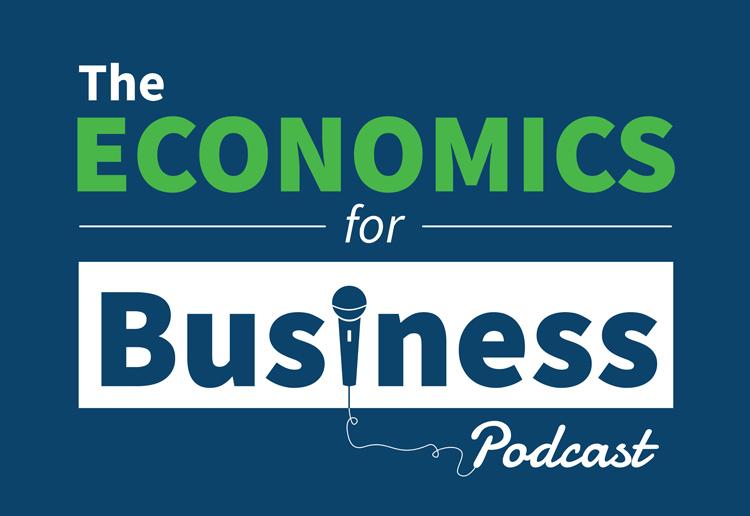
Entrepreneurship is the great force for social good– in truth, the best force for good in the history of civilization. It’s the system of continuously enhancing the lives of others so we can enhance our own lives. Through entrepreneurship, we can accomplish greater and higher levels of neighborhood, partnership and societal advance. Eamonn Butler, Co-Founder and Director of the Adam Smith Institute, has actually written what he calls a Guide for understanding and appreciating the wonderful institution of entrepreneurship (Mises.org/ E4B_130_Book1). He highlights some of the key points on the Economics For Company podcast.
Development and improvement.
To constantly enhance people’s lives, we require new things. We require people to develop things that haven’t been considered in the past. And we require innovators, individuals who enhance those things and discover new purposes for them or brand-new ways of producing and distributing them. And we require entrepreneurship, the marshalling of resources to produce these much better things faster and more efficiently and get them into more people’s hands.
Entrepreneurs are those unique individuals who arrange the marshalling of resources, and who risk their own capital and their investors’ capital in this pursuit of a much better future for all.
Cascading Development.
When entrepreneurs undertake this act of discovery, and specifically when they are successful, they trigger cascading development. One innovation and entrepreneurial initiative causes another. They are all focused on making individuals’s lives better– simpler, healthier, easier, more cost effective, more effective. And, ultimately, understanding spreads, and individuals’s lives are changed, so that Indian peasant farmers can check produce rates on their smartphone and get the very best offer from the marketplace. Advancement waterfalls from private to specific, firm to company, market to market and nation to country. It’s nonstop enhancement.
Long-termism and ethical habits.
The outcome is long term uplift and advantage for all. Entrepreneurs are long term thinkers. They are focused on the life time of their company and their items, and maybe to passing them on to the next generation (Political leaders are the opposite– they can only think in election cycles).
Entrepreneurs don’t want to simply make a short-term earnings and then leave the market. They want long term revenues and long term profits. That implies developing dependable, returning consumers who enjoy the entrepreneur’s item. That requires thrilling those clients, serving them perfectly, never ever letting them down or breaking a promise. There are few other, if any, organizations that are made up in this way.
This Long-termism is ethical. Entrepreneurship is morally driven.
Internationalism
A little company can trade on a global stage, and if they can, they will. It’s much easier than ever prior to in the digital era. New and better ideas rapidly spread around the world. But it has actually constantly been the case, given that the earliest of times. Politicians establish borders to divide individuals, and after that break them in intrusions and wars. Business owners see no borders between people. Political borders can’t divide markets.
Social great.
Entrepreneurship attains more for social excellent than any other organization. Entrepreneurial development in goods and services boosts life and opens up brand-new possibilities. Clients flock to entrepreneurs due to the fact that of the significant service they deliver. The constant enhancement provided by business owners constitutes civilizational progress. The competitive pressure to enhance quality and make use of resources more efficiently produces more and more value for the world.
It’s a mistake to see business as extractive– extracting and using up resources. Organization is generative, putting life-altering developments at the disposal of the worldwide population. What’s seen is the dirt and smoke left over from mining or manufacturing. What’s not seen, and is often unappreciated, is the big quantity of excellent that enters into the world via entrepreneurship.
Entrepreneurship is the application of property rights at every scale.
It’s another mistake to consider entrepreneurship as small business or young and immature company. Ray Kroc of McDonald’s was an excellent example of a business owner who exercised how to operate a hamburger restaurant at worldwide scale with constant improvement. Entrepreneurship needs property rights; individuals need to have control over their property in order to transform it into marketable innovations and services. However that does not restrict the scale of entrepreneurship. Home rights are a principle that supports global scaling.
The entrepreneurial approach.
Probably the very best way to specify entrepreneurship is as a process or an approach. It’s akin to– and as important to civilization as– the scientific approach, but various. They both involve trial-and-success, developing concepts and evaluating them. The scientist tests versus truth, trying to find a law, a repeatable outcome that will never vary. The business owner tests against consumer approval, searching for approval that may be repeatable till conditions alter, such as brand-new competition arriving. Entrepreneurs can’t forecast the future as scientists can, and they can’t apply control in the type of unchanging lab conditions. Yet they still are challenged to construct a business that lasts.
Can we nurture this organization?
Yes. In school, via literacy and entrepreneurially-oriented education, teaching youths about earnings, and unpredictability and the requirement for helpful ecological elements such as residential or commercial property rights and flexible labor laws, and the worth of attempting several various efforts prior to finding a winning proposal. We might not have the ability to teach successful entrepreneurship, however we can produce the conditions for learning.
A selection of books by Eamonn Butler
Entrepreneurship: A Primer: Mises.org/ E4B_130_Book1
Austrian Economics: A Guide: Mises.org/ E4B_130_Book2
Classical Liberalism– A Guide: Mises.org/ E4B_130_Book3
Ludwig von Mises– A Guide: Mises.org/ E4B_130_Book4
Friedrich Hayek: The Ideas and Influence of the Libertarian Economic expert: Mises.org/ E4B_130_Book5
The Condensed Wealth of Nations: Mises.org/ E4B_130_Book6

